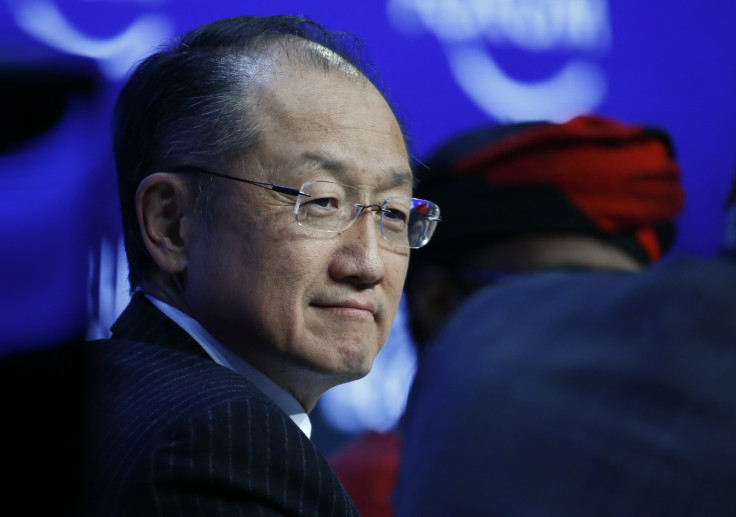World Bank calls on China's AIIB and Brics' NDB to help eradicate extreme poverty

The World Bank has welcomed its new rivals – the China-backed Asian Infrastructure Investment Bank (AIIB) and the New Development Bank (NDB) established by the Brics nations – saying the banks can coordinate to help reduce poverty in the global economy.
Speaking at the Center for Strategic and International Studies (CSIS) in Washington, World Bank Group President Jim Yong Kim said both AIIB and NDB could be the World Bank's strong allies in the economic development of poor countries and emerging markets.
"If the world's multilateral banks, including the Asian Infrastructure Investment Bank and the New Development Bank, can form alliances, work together, and support development that addresses these challenges, we all benefit – especially the poor and most vulnerable," said Kim.
"It is our hope – indeed, our expectation – that these new entries will join the world's multilateral development banks and our private sector partners on a shared mission to promote economic growth that helps the poorest."
He added that he will do everything in his power to find new and innovative ways to work with the new institutions.
The World Bank's readiness to work with the AIIB and NDB comes as it targets to end extreme poverty by 2030 and boost shared prosperity among the poorest 40% in low- and middle-income countries. At present, an estimated 12% people of the 7.3 billion world population are living in extreme poverty, compared to 36% of 5.2 billion population in 1990, according to the World Bank.
United Nations defines extreme poverty as "a condition characterised by severe deprivation of basic human needs, including food, safe drinking water, sanitation facilities, health, shelter, education and information."
In order to eradicate poverty, more financing is needed in the areas of infrastructure, energy, and water, and the new international banks may fill in the gaps, Kim noted.
"We estimate that the world needs an additional US$1 to 1.5tn dollars every year to be invested in infrastructure – roads, bridges, railways, airports, and energy plants," he said.
"The decisions we make this year, and the alliances we form with other institutions in the years ahead, will help determine whether we have a chance to reach our goal of ending extreme poverty in just 15 years," he added.
© Copyright IBTimes 2025. All rights reserved.






















